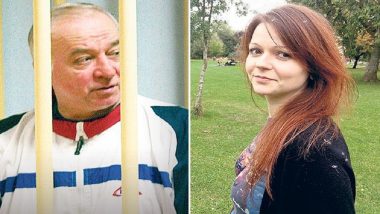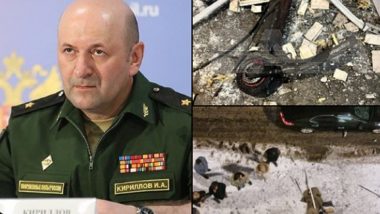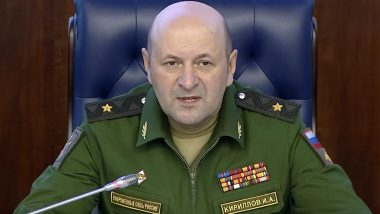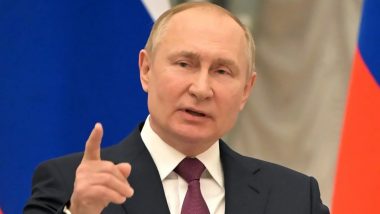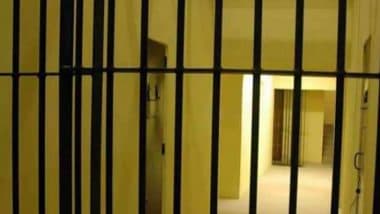The British government’s deadline to Moscow to explain how a nerve agent manufactured by it came to be used in the poisoning of former Russian mole Sergei Skripal and his daughter Yulia, has passed. British Prime Minister Theresa May had given Russia until Tuesday midnight "to provide unambiguous answers as to how this nerve agent came to be used" in Salisbury, the scene of the attack.
The PM has said it is "highly likely" Russia was involved in the poisoning and the UK must "stand ready" to take action. She said details would be set out in the Commons on Wednesday should there be no "credible" explanation by midnight on Tuesday from Moscow.
The UK government has concluded that Russian government was involved in the attack after the nerve agent used against Skripal was identified as Novichok, a chemical agent developed by Russia during the Soviet era. The Russian government has never acknowledged its existence. However, the Russian chemist who helped develop the Soviet-era nerve agent exposed its manufacturing way back in the 1990s.
According to Vil Mirzayanov, 83, only the Russian Government could have carried out the attack with such a deadly and advanced toxin, given Russia maintained tight control over its Novichok stockpile and that the agent is too complicated for a non-state actor to have weaponised.
UK Foreign Secretary Boris Johnson said if the attack was shown to be a "direct act" by the Russian state it would be a "clear violation of the chemical weapons convention, a breach of international law and a threat to those who abide by the rules-based international order".
The Russian embassy in London posted a series of tweets as the deadline loomed for it to explain how a Russian-made nerve agent was used in Salisbury. It said there would be no reply to the "ultimatum" until it was given access to samples of the substance.
1/7 UK Ambassador Laurence Bristow was summoned to @MFA_Russia, where First Deputy FM Vladimir Titov strongly protested the evidence-free accusations by the UK authorities of Russia’s alleged involvement in the poisoning of Sergei Skripal and his daughter Yulia. pic.twitter.com/wQvl2AwLJI
— Russian Embassy, UK (@RussianEmbassy) March 13, 2018
2/7 It was stated that the actions of the UK authorities are a clear provocation and that the Russian Federation was not involved in the incident that took place in Salisbury on 4 March, 2018. pic.twitter.com/WppmgfgO6L
— Russian Embassy, UK (@RussianEmbassy) March 13, 2018
3/7 Moscow will not respond to London’s ultimatum until it receives samples of the chemical substance to which the UK investigators are referring. pic.twitter.com/B5CNtimcc3
— Russian Embassy, UK (@RussianEmbassy) March 13, 2018
The UK government has not publicly disclosed the measures it is considering against Moscow. But, May’s subsequent phone calls to U.S. President Donald Trump and French President Emmanuel Macron show that she is working to build an international coalition of support – in the event of the decision to impose fresh sanctions on Moscow. The Foreign Office said the UK would brief a session of the North Atlantic Council, NATO's political decision-making body, on Wednesday.
Among other options, precedence suggests the British government could and probably will expel Russian diplomats, as was the case in 2006 during the poisoning of another Russian defector Alexander Litvinenko. Another likely action could be revoking the license for RT, Russian state television, so that it can no longer operate in the UK. American intelligence agencies assessed in January 2017 that RT is the "Kremlin's principal international propaganda outlet" and that it carried out a systematic campaign to boost the candidacy of Donald Trump during the U.S.’s 2016 elections.
According to Peter Bergen, writing for the CNN the British could also use their Article 51 – right to self-defense enjoyed by all states in the United Nations. This would allow the British to respond with, say, a large-scale cyberattack against Russian government websites, as well as against Russian government proxy websites that push disinformation.
Theresa May’s response to the Salisbury attack will show the Western governments’ willingness to try and rein Russia in which has faced off against them in Ukraine, Syria and North Korea.
(The above story first appeared on LatestLY on Mar 14, 2018 11:01 AM IST. For more news and updates on politics, world, sports, entertainment and lifestyle, log on to our website latestly.com).













 Quickly
Quickly









